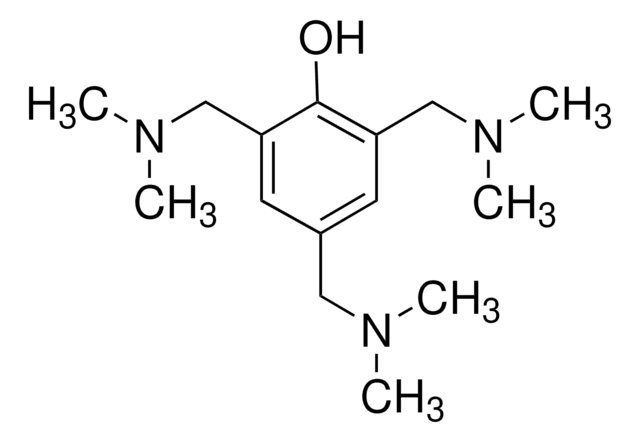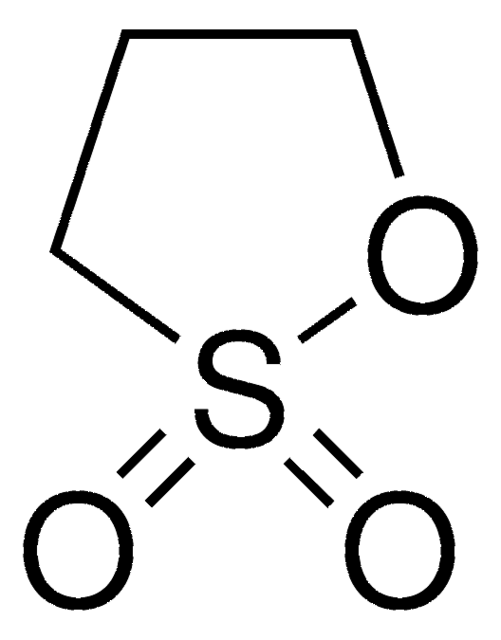417793
5-Ethyl-1-aza-3,7-dioxabicyclo[3.3.0]octane
97%
Synonym(s):
5-Ethyl-3,7-dioxa-1-azabicyclo[3.3.0]octane, Dihydro-7a-ethyloxazolo[3,4-c]oxazole
About This Item
Recommended Products
Assay
97%
form
liquid
refractive index
n20/D 1.461 (lit.)
bp
75 °C/10 mmHg (lit.)
density
1.083 g/mL at 25 °C (lit.)
SMILES string
CCC12COCN1COC2
InChI
1S/C7H13NO2/c1-2-7-3-9-5-8(7)6-10-4-7/h2-6H2,1H3
InChI key
ZRCMGIXRGFOXNT-UHFFFAOYSA-N
Looking for similar products? Visit Product Comparison Guide
Application
- A new formulation for the treatment of acid-deterioration (Red Rot) in historic leathers: This study introduces a new formulation containing 5-ethyl-1-aza-3,7-dioxabicyclo[3.3.0]octane for treating acid-deteriorated historic leather, highlighting its potential in preserving cultural heritage materials (A Lama et al., 2015).
- Use of aluminium alkoxide and oxazolidine II to treat acid-deteriorated historic leather: Examines the effectiveness of a treatment combining 5-ethyl-1-aza-3,7-dioxabicyclo[3.3.0]octane with aluminium alkoxide on historic leather, comparing it to individual treatments to assess synergistic effects (A Lama et al., 2015).
Signal Word
Danger
Hazard Statements
Precautionary Statements
Hazard Classifications
Acute Tox. 4 Inhalation - Aquatic Chronic 3 - Eye Dam. 1 - Skin Irrit. 2 - Skin Sens. 1
Storage Class Code
10 - Combustible liquids
WGK
WGK 3
Flash Point(F)
174.2 °F - closed cup
Flash Point(C)
79 °C - closed cup
Personal Protective Equipment
Choose from one of the most recent versions:
Already Own This Product?
Find documentation for the products that you have recently purchased in the Document Library.
Our team of scientists has experience in all areas of research including Life Science, Material Science, Chemical Synthesis, Chromatography, Analytical and many others.
Contact Technical Service




![Bis[tetrakis(hydroxymethyl)phosphonium] sulfate solution technical, 70-75% in H2O (T)](/deepweb/assets/sigmaaldrich/product/structures/236/818/d029a904-00ee-46ad-9fe2-2369f9894cc4/640/d029a904-00ee-46ad-9fe2-2369f9894cc4.png)


![5-Ethyl-3,7-dioxa-1-azabicyclo[3.3.0]octane analytical standard](/deepweb/assets/sigmaaldrich/product/structures/217/909/e57e5f7a-f889-423e-adb3-e3e98050117b/640/e57e5f7a-f889-423e-adb3-e3e98050117b.png)


